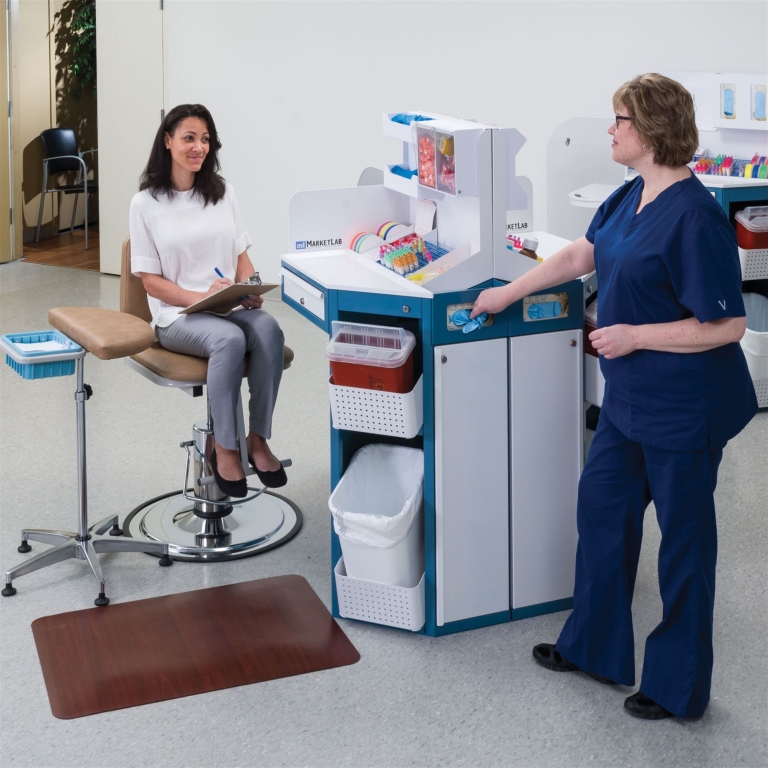Unlocking Opportunities: your Guide to Certified phlebotomy technician jobs
As the healthcare industry continues to grow, so does the demand for skilled professionals in specialized fields. Among these roles, certified phlebotomy technicians play a crucial part in health diagnostics and patient care. If you’re considering a career in this rewarding field, this guide will provide valuable insights into certified phlebotomy technician jobs, the certification process, benefits, and tips for success.
What is a Phlebotomy Technician?
A phlebotomy technician,also known as a phlebotomist,is a healthcare professional trained to collect blood samples from patients for medical testing,transfusions,or donations. They serve as the primary point of contact between the patient and the laboratory, ensuring a seamless and safe blood collection process.
Why Pursue Certification in Phlebotomy?
Obtaining certification in phlebotomy can significantly enhance your job prospects and earning potential. Here are some reasons to consider pursuing certification:
- Increased Job Opportunities: Manny employers require certification to ensure that candidates have the necessary skills and knowledge.
- Higher salary Potential: Certified phlebotomy technicians frequently enough command higher salaries than non-certified counterparts.
- Professional Credibility: certification demonstrates your commitment to the field and adherence to professional standards.
How to Become a Certified Phlebotomy Technician
Becoming a certified phlebotomy technician involves several key steps:
- Complete a Phlebotomy Training program: Enroll in an accredited phlebotomy training program lasting approximately 4 to 8 months.
- Obtain Hands-On Experience: most programs require a number of blood draws under supervision to gain practical experience.
- Pass the Certification Exam: After completing your training, sit for a national certification examination to earn your certification.
Certification Organizations
Several reputable organizations offer certification for phlebotomy technicians. Below is a comparison of some of the leading certifying bodies:
| Certification Body | Exam Format | Validity Period |
|---|---|---|
| American Society for Clinical Pathology (ASCP) | Multiple-choice | 3 years |
| National Phlebotomy association (NPA) | Multiple-choice | 1 year |
| American Medical Technologists (AMT) | Multiple-choice | 3 years |
| National Center for Competency testing (NCCT) | multiple-choice | 2 years |
Job Opportunities for Certified Phlebotomy Technicians
Certified phlebotomy technicians can find opportunities in various healthcare settings, including:
- hospitals
- Clinics
- Blood donation centers
- Laboratories
- Research facilities
Benefits of Becoming a Phlebotomy Technician
Choosing a career as a phlebotomy technician comes with several advantages:
- Job Security: The healthcare field is less susceptible to economic downturns, providing stable job prospects.
- Flexible Work Hours: Many phlebotomy jobs offer shift flexibility,making it easier to manage personal commitments.
- Direct Patient Interaction: Phlebotomy technicians have the opportunity to engage with patients and contribute to their care.
Practical Tips for Success in Phlebotomy
To succeed in your role as a phlebotomy technician, consider the following tips:
- Stay Updated: keep abreast of the latest techniques and technologies in phlebotomy.
- Enhance Interaction Skills: Building rapport with patients can improve their experience and cooperation.
- Practice Good Hygiene: Adhere to strict hygiene and safety protocols to minimize risks.
Case Study: A Day in the Life of a Phlebotomy Technician
To provide a better understanding of the role, let’s look at the typical day of Sarah, a certified phlebotomy technician:
Sarah begins her day at the local hospital, checking the schedule for the day’s patients. She prepares her tools and ensures the lab is ready for blood collection. Throughout the day,she interacts with various patients,reassuring them during the process and managing their comfort. Sarah skillfully collects blood samples, labels them, and sends them to the lab for analysis. At the end of the day, she updates patient records and prepares for the next day’s duties.
Conclusion
Becoming a certified phlebotomy technician opens the doors to a stable career with plenty of growth opportunities. With the right training, certification, and dedication, you can excel in this rewarding field. As the healthcare industry continues to evolve,your role as a vital member of the healthcare team will only become more significant. Start your journey today and unlock numerous opportunities as a certified phlebotomy technician!
